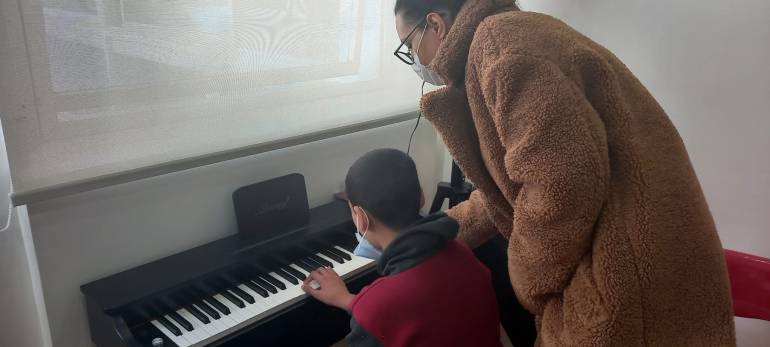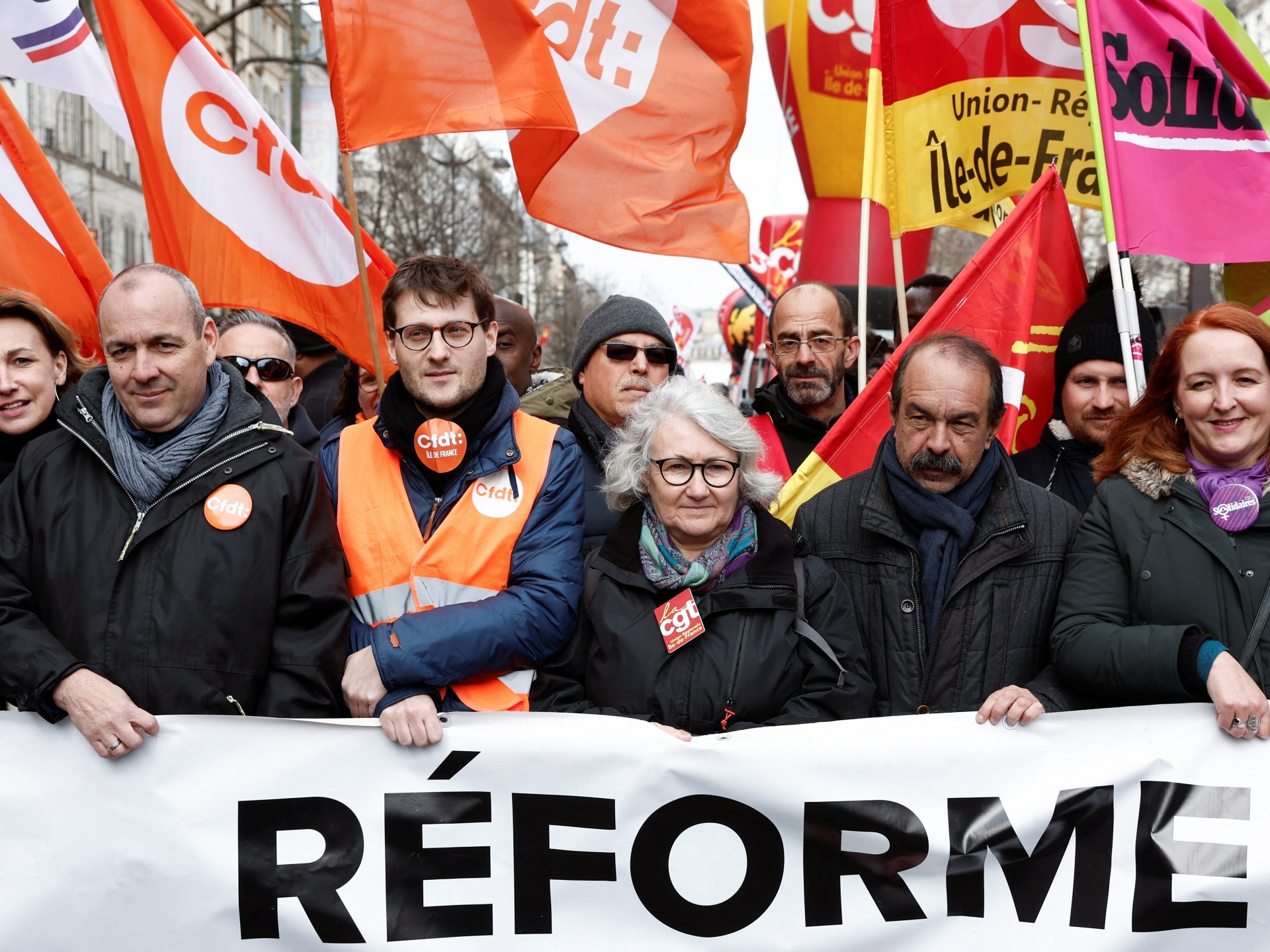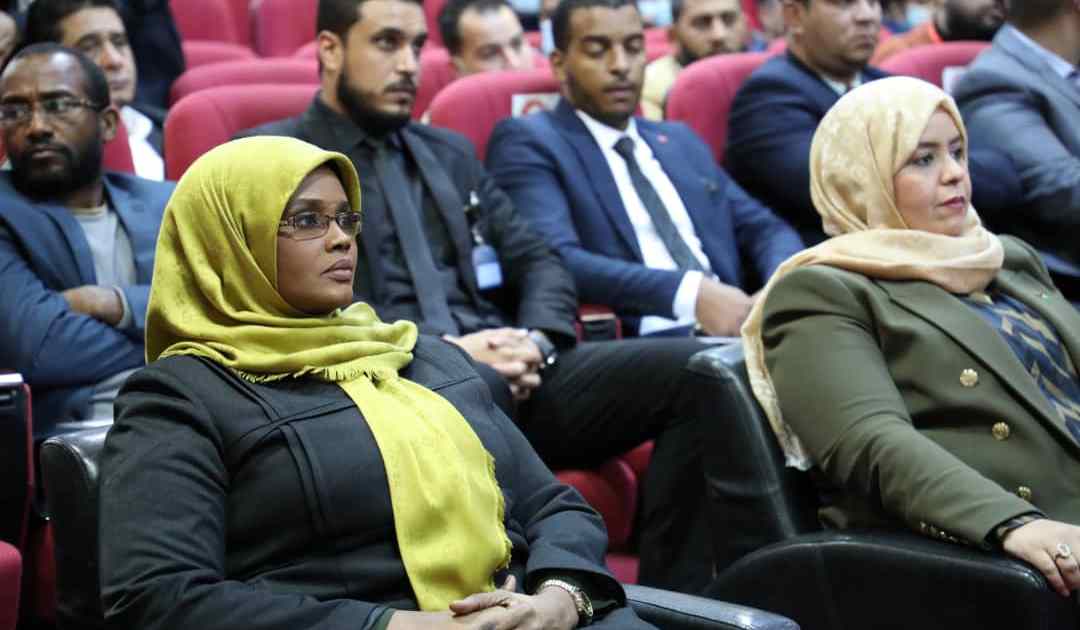Healing with music: A Moroccan NGO revives the spiritual practice | Music
Rabat, Morocco – At the Ibn Sina public hospital, Abdelmajeed says tells Al Jazeera how his teenage son now no longer dreads the wait for the four-hour kidney dialysis sessions he needs to undergo three times each week.
The 14-year-old has been taking guitar and piano lessons for the past two months at the hospital, after having been”stripped of childhood” by kidney failure that drove him out of school and into 14 surgeries since infancy.
“It was not until music appeared in his life through lessons in the hospital, that his morale radically improved, and his spirit picked up. It’s all thanks to the love of music which he recently discovered,” says Abdelmajeed, who asked to be referred to by his first name out of respect for his son’s privacy.
Abdelmajeed’s teenage son is one of the unwell children enjoying free music classes at the hospital as part of an initiative launched by the Dr Abderrahmane Fennich Foundation, an NGO, to help children with chronic illnesses through their health battles. In using music to help heal, the initiative builds on Morocco’s heritage of spiritual music that is widely believed to heal the soul.
“My son hated hospital visits. They were a heavy load on his heart. But thanks to these lessons, he now looks forward to hospital visits because of all the musical instruments and knowledge that awaits him there,” Abdelmajeed says.
According to Naila Fennich, chairperson of the Fennich Foundation, this music-filled space “does not treat children from their physical ailments or mental challenges, but it rather reduces the severity of the diseases they suffer from”.
A happy place
The Music Settles in the Hospital project comprises two music rooms: one opened by the foundation independently in July 2021 and the other in December with the support of the kingdom’s culture ministry, allowing children who frequent the hospital an opportunity to restore a sense of their normal childhood through music lessons.
The two music rooms, equipped with 21 instruments, including pianos, guitars, and violins, host classes for up to 20 young patients. Six instructors offer eight hours of free classes a week, teaching the basics of music to the young beginners.
Classes are designed to include no more than three students at a time to ensure each child gets the attention they deserve and the opportunity to learn and engage with others, Naila says.
Hicham Ben Moussa, a guitar instructor, has been teaching music for 14 years and he offers free lessons at the hospital.
“I have not seen such an eagerness for music as I have observed in sick children at Ibn Sina Hospital. They were desperately waiting for an activity to relieve them from the coldness of hospitals, and from the clutches of pain,” he says.
Piano teacher Sara Zouhair, 27, offers two hours of free lessons to recovering young patients at the hospital. Throughout her seven-year career, she has taught children with autism and other mental health challenges.
“I’ve seen how music soothes patients and helps alleviate the hospital’s painful impact,” she says.

Heritage of musical healing
The Fennich Foundation, following in the steps of the physician and musician it is named after, is determined to provide the same moral support through music to all unwell children across the kingdom, through its collaboration with the culture ministry. According to Naila, efforts are under way for another project to be launched by the year’s end.
“My father called for the adoption of music in the hospitals of our country because of its positive impact on patients. He believed in the importance of music therapy for psychological and physical healing,” she says.
Speaking in a radio interview in the 1980s, Dr Abderrahmane told of historical Islamic scientists who used music to remedy certain health conditions, as well as Sufi chants and rituals that relied on rhythm to help the ill. Taking inspiration from Islamic heritage that is entrenched in Moroccan traditions, Dr Abderrahmane called in the interview for the adoption of music in medical institutions to ease patients’ pain.
The North African country, a crossing point between sub-Saharan Africa and Europe and a historic home to many ethnicities and faiths, has a rich musical culture that intersects arts with spirituality, mental healing and more, and which is still widely celebrated today.
The kingdom’s ancient capital of Fez was home to one of the earliest psychiatric institutions in the world in the 13th century. At Maristan Sedi Fredj, patients suffering from dementia, hallucinations, and other mental health problems enjoyed weekly sessions of Andalusian music to relieve their suffering.
Today, a Sufi festival is held every year in In Fez, the “spiritual capital” of Morocco, bringing together musicians and experts to explore the power of song and rhythms on overwhelmed minds and unwell bodies.
Speaking to Al Jazeera, psychologist, sociologist and lecturer at the Faculty of Human Sciences El-Jadida, Abdeljabbar Choukri, says Sufi and spiritual songs have long attracted Moroccans for their soothing effects.
“Gnawa and Aissaoua, on the other hand, were historically believed to drive away evil spirits and used to heal those touched by the devils in exorcism rituals,” he says, referring to male-led chants associated with various ethnic groups that have historically taken root in Morocco, and whose rituals – combining beats and dance – have been a part of its rich heritage of music.
‘Physical limitations’
Despite Morocco’s long history of healing with music, Fennich Foundation found it difficult at first to convince health institutes to dedicate space for music, Naila says.
The changing health conditions of the young patients proved to be a big challenge as well.
“We are sometimes unable to pursue lessons with some children because of their evolving health conditions. Deteriorations in their conditions can prevent them from attending their classes,” says Naila.
Some illnesses, guitar instructor Ben Moussa explains, limit patients’ ability to practice certain instruments. “Children undergoing kidney dialysis with tubes running across their hands and wrists find it difficult to hold guitars. But we do our best to overcome this to provide the best possible opportunities for them to learn.”
Abdelmajeed, whose teenage son is showing what Ben Moussa describes as great skill and talent on the piano, points out another challenge – that many families are not able to provide instruments at home for their children to practice on, which slows their progress.
But despite all the limitations, families and patients would not think twice about attending these classes.
Faiza’s eight-year-old grandchild Elias has an attention disorder, and she began taking him to music classes at the hospital on the advice of his physician.
“With time, he became more grounded, focusing more on his surroundings, and wants to be a pianist,” the grandmother says proudly.
This article was written in collaboration with Egab




